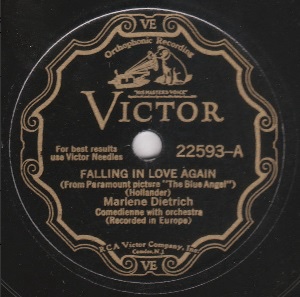
No deaths were required for the making of this history
There is a story Lewisohn tells in “Tune In” about Ringo going home after the flood in Hamburg. His grandmother who raised him died on February 7. The flood was February 15th and 17th. Most importantly, Ringo’s contract was up and he’d already left Hamburg. The flood is mentioned, but as Ringo is in Liverpool when it happens and has three other contracts to choose from, it’s not pivotal.
Only it’s 2019 and now but for the flood, Ringo might not have been in the Beatles at all. That this makes zero sense or that it actually contradicts what he wrote in Tune In is no bar to Lewisohn tossing out this new Beatles’ “history” rewrite.
Suddenly the Hamburg flood is another fate-interfering near-miss of the Beatles-Almost-Not-Happening. If not for this flood Ringo would not have left Hamburg after his contract ended and might have just stayed there and waited around for no reason until two months later in April when this new contract came up with the enticing offer of shackling himself to Hamburg for another year… instead of leaving Germany after his contract ended LIKE LITERALLY EVERY ONE ELSE DID. If not for the flood Ringo would have just hung around in Germany. We came so close to not having him in The Beatles because obviously he would have hung around in Germany and not gone back home if not for that flood.
When you listen to this clip imagine the preeminent Civil War historian telling it. Or a WWI historian telling it with a few changes to make it about a crucial battle. Imagine if a historian told a story like this to say that a war would not have been won but for this act of God, and the facts supporting that sweeping statement were as thin, contradictory, and tangential as these. You can’t do it. This is tabloidish and unserious, and that “historian” would be a joke within 24 hours.
Transcription
MARK LEWISOHN: There’s a— there’s a story in Tune In that is quite extraordinary, because Ringo had gone to Hamburg at the very end of ’61. He’d left Rory Storm and the Hurricanes and he’d gone to be in the house band of the Top Ten Club. Star Club opened in April of ’62, so before it did the only club in Hamburg was the Top Ten Club. And the Star Club basically came along and trumped the Top Ten— took over its acts and took over being number one club. But Ringo was in the house band of the Top Ten Club and he intended to stay there. And he— it began New Year ’62, and then in mid-February there was the most atrocious flood in Hamburg that killed over three-hundred people. And the clubs were closed for a period of time. There were power cuts and it was just a horrible situation. And so Ringo left and came back to Liverpool. Arguably, had the flood not happened he wouldn’t have been available for the Beatles.
CHRIS SHAW: Yeah.
LEWISOHN: So he would’ve still been there in the Top Ten Club. But, uh— or maybe moved to the Star Club by then. But he— it was because of the flood that he was available for the Beatles. When they came knocking on his door.
SHAW: That’s another one of those Beatles’ stories, isn’t it?
LEWISOHN: Yeah. And all those people had to die for that to happen. It was over three-hundred.
SHAW: Wow.
*Why? Why would he have still been there if his contract was up? Why would he have stayed in Germany??
First of all, that is not the story Lewisohn told in Tune In. In Tune In Ringo had gone home—Lewisohn says because his grandmother had died, but basically everyone except Sheridan went home after their contracts ended and there’s no reason for Ringo not to have fled Hamburg like he did at the end of every other gig—but either way, Ringo went home and once back in Liverpool he got four different offers, and the objectively least appealing was another year in Hamburg. The flood happened, but it’s difficult to see how it affected Ringo. It didn’t affect the yearlong Hamburg gig he was offered three months later—it was still offered—and it doesn’t seem to have affected his decision to choose to go to France with the Hurricanes.
What Mark Lewisohn wrote in Tune In:
Ringo might have stayed, extending his two-month contract, but he took the opportunity to go home, because his beloved grandmother had died.
Lewisohn, “Tune In” p577 • (emphasis mine)
So he did not extend his contract. And when he got four different offers once he got home—one of them being to play at a US Army base in France—the pickiest eater on earth who had been dreaming of America his whole life chose the US Army base over going all the way back to Hamburg to be to be yelled at in German while drumming in a band that was tanking.
As it was, he’d gone home and picked up other offers, new adventures to explore, not old ones to repeat. While he’d had a great time in Hamburg and was very tempted to return, he said no. As Sheridan and Young stayed in St. Pauli more or less continuously from this point, year after year until later in the decade, Ringo’s instinctive decision was crucial to his future. Sheridan’s was just one of four offers Ringo received in the space of about three weeks. The second was to join Howie Casey and the Seniors on the road, and the third was the one he accepted—to rejoin the Hurricanes. It wasn’t so much that he craved their company or musicianship, though they were all still mates, it was what they were doing that interested him: they were off to France for a month or more, to play to the soldiers at a United States Army base.
Only four months after Ringo reluctantly ended his Houston emigration plans, he’d be inside the little American enclaves that dotted the postwar European landscape, enjoying access to PX shops full of amazing American goods. And as it also happened that the Hurricanes’ return from France would lead into a third straight Butlin’s summer season, running from the start of June to early September, Ringo would be back with Rory another six months before considering his next move.
Tune In, Ch. 26, “Us Against Them” p. 293 • (emphasis mine)
Ringo hated Hamburg. His contract was up. His grandmother had just died. He left. He was home in Liverpool when a devastating flood hit Hamburg. Out of four offers he chose the US Army base in France over three others, including one requiring him to live in Germany for one whole year, through April 1963.
No deaths were required for the making of this history.
You do not need an act of God to explain this decision. All those people did not have to die for Ringo to join the Beatles.
But in the years since “Tune In” was published the way Lewisohn tells the story, if not the story itself, has grown to make it another example of the magic of fate. It’s big. It’s dramatic.
🪄
There was this moment in history where an act of God that killed more than 300 people might have proved a turning point on which the entire existence of The Beatles hung. But they were meant to be and “all those people had to die” for The Beatles to live.*
*Artist’s interpretation of Lewisohn’s words.
Many of Lewisohn’s direct statements are kind of shocking. Also kind of funny, but then also not. Because this is exactly what makes “Tune In” so good. It’s dramatic and it is magical. It’s a magical story anyway, but the way he tells it is immersive and addictive.
But my great-grandmother was the best storyteller I’ve ever heard, and that’s because the woman would say things like, “I once cussed a man’s gun out of his hand” in her “true” stories. They were definitely true stories mythologized into genius tall tales—(a gift I rarely see today)—and sometimes when she finished we’d make a game of trying to guess which parts were stretched. Usually it was obvious, at least in most places. We knew she didn’t cuss a man’s gun out of his hand, but there was a well-known story about her facing down a rival moonshiner who was threatening her with a gun and walking away not only alive, but with more territory. We all craved and cried for her stories where truth and myth were brilliantly woven together. We wanted the element of folklore that made it magical. We wanted the repeatable lines. They bonded us together as a family. They made us feel special.
And that is exactly what Lewisohn’s narratives of Beatles’ history do. The magic helps to bond us to The Beatles and to each other the way my grandmother’s stories bonded our family together. But the way my grandmother told the stories there was no mistaking the spark and the crackle for the verifiable fire.
And my grandmother didn’t dress her stories up in “historian” packaging.
One more brief example…
Lewisohn just says shit, Falling in Love Again example:
“It really should be Hollaender/McCartney”
“The interesting thing about ‘Falling in Love Again” is that Paul wrote the lyrics, because it was in German. It wasn’t in English. There may have been– I suspect there must have been some kind of English adaptation…”
Lewisohn; I am the Eggpod with Chris Shaw, Episode 31
“Falling in Love Again (Can’t Help It)” is the English language name for a 1930 German song composed by Friedrich Hollaender as “Ich bin von Kopf bis Fuß auf Liebe eingestellt” (literally: “I am, from head to toe, ready for love”). The song was originally performed, in the 1930 film Der Blaue Engel (English translation: The Blue Angel), by Marlene Dietrich, who also recorded the most famous English version, which became her anthem. Dietrich is backed by the Friedrich Hollaender Orchestra.
The English lyrics were written by Sammy Lerner • Wikipedia (Emphasis mine)

So Lewisohn did kind of edge back from it once it had escaped his lips, but then he still goes ahead and says, “It should have been Hollaender/McCartney.” No normal historian throws out words this carelessly. They don’t think of history like a toy that is theirs to stretch and mould into magic, or anything else.
To be fair to Paul, he really does add some words, but it’s wild to me that Lewisohn lets things like “it was in German—it wasn’t in English” escape his lips. I know a lot of historians and it’s impossible to imagine any of them even thinking this way, let alone talking this way, because they take their jobs and the trust their jobs entail seriously.
(I am in no way throwing shade on Chris Shaw.)
